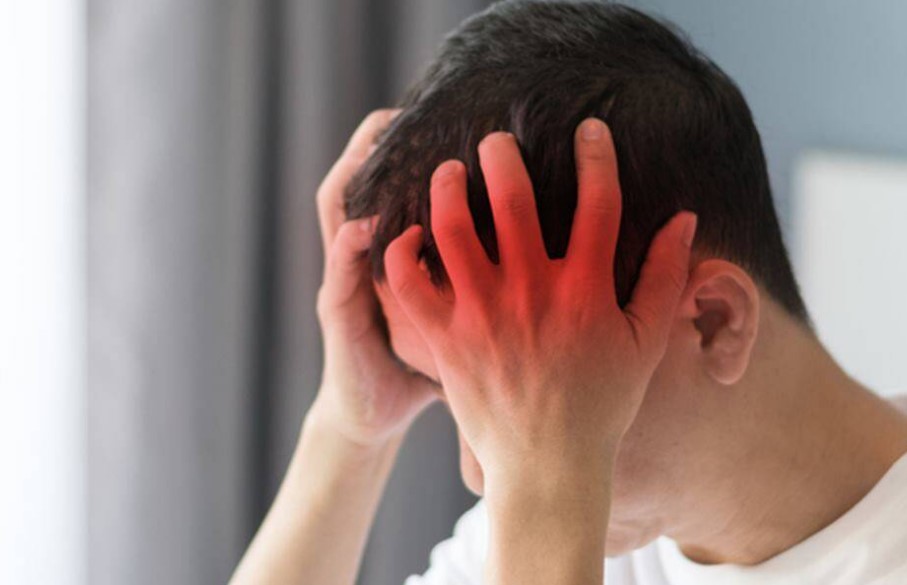Menopause is a significant life change for women that can cause a range of uncomfortable symptoms, including hot flashes, night sweats, mood swings, and headaches. Headaches, in particular, can be a real pain in the neck (or anywhere else they happen to strike), affecting your ability to work, socialize, and enjoy life.
Menopause-related headaches can be triggered by hormonal changes, stress, lack of sleep, and other factors. Fortunately, there are many strategies you can use to manage menopause migraines effectively, including medication, lifestyle changes, and alternative therapies.
In this blog, we’ll explore these strategies and offer some tips on how to navigate the minefield of menopause migraines and find relief.
Table of Contents
From Medication to Mindfulness: Beating Menopause-Related Headaches
Menopause-related headaches can be a real pain in the neck (or anywhere else they happen to strike). But there are lots of things you can do to manage them and improve your quality of life.
Medications
Over-the-counter pain relievers like ibuprofen and acetaminophen can help alleviate headaches and pain. If over-the-counter medications aren’t effective, your doctor may prescribe a more vital pain medication or a preventive medication to reduce the frequency of headaches. Hormone replacement therapy (HRT) can also be effective in balancing out the levels of estrogen and progesterone in your body, which can help reduce the frequency and severity of headaches.
Lifestyle changes
Making changes such as getting regular exercise, practicing stress-reduction techniques, and maintaining a healthy diet can help reduce the frequency and severity of headaches.
Alternative therapies
such as acupuncture and massage therapy, can also help manage menopause-related headaches by reducing muscle tension, improving circulation, and promoting relaxation.
Heading off Headaches: Tips for Preventing Menopause Migraines
When it comes to preventing menopause-related headaches, you can take several steps to reduce the frequency and severity of migraines. Here are some key points to consider:
Maintaining a healthy diet
Eating a diet rich in fruits, vegetables, and whole grains can help reduce headaches’ frequency and severity. Avoiding foods that are high in sugar and processed foods can also be beneficial.
Regular exercise
Regular exercise can help to reduce stress and tension in the body, which can lead to headaches. Aim for at least 30 minutes of moderate-intensity exercise, such as brisk walking, cycling, or swimming, most days of the week.
Managing stress
Stress is a common trigger for migraines and headaches. Finding ways to manage stress, such as through meditation, yoga, or deep breathing exercises, can help to reduce the frequency and severity of migraines.
Adequate sleep
Ensuring that you are getting enough sleep each night can help to reduce the frequency and severity of headaches. Aim for seven to eight hours of sleep each night.
As you can see, menopause-related headaches are a real issue and one that can be managed. By taking these steps, you can help to reduce the frequency and severity of menopause-related headaches and improve your overall quality of life.
Navigating the Menopause Migraine: Coping Strategies for Relief
Managing your migraines can be a lot like navigating a minefield. With so many triggers and symptoms, it’s easy to get lost in the weeds and forget what’s important: relieving pain, bringing relief from your symptoms, and getting back to life.
So how do you make it better? We’ve got some tips for you.
Keep a headache diary
Keeping track of when your headaches occur, what triggers them, and how long they last can help you identify patterns and triggers. This information is useful when discussing treatment options with your healthcare provider.
Medication management:
In the UK, there are menopausal health supplements that can be found as both over-the-counter and prescription medications for treating headaches related to menopause. Consult with your healthcare provider to determine which menopausal health supplement is right for you and be sure to follow the instructions carefully/
Relaxation techniques:
Deep breathing, yoga, and meditation can help reduce stress and tension in the body, both critical factors in the development of headaches, and provide pain relief.
Cold Compress
Applying a cold compress to the back of your neck or forehead can help reduce inflammation and relieve pain.
Acupuncture
Traditional Chinese medicine involves the insertion of thin needles into specific points on the body. It is believed to stimulate the body’s natural pain-relieving chemicals and can effectively treat headaches.
Mindfulness
It is a way of paying attention to the present moment. It can help reduce stress and increase self-awareness, leading to better management of headaches.
Don’t let menopause-related headaches get you down! Remember that everyone’s experience with these kinds of headaches is unique, so it’s essential to work with your healthcare provider to find the coping strategies that work best for you. And don’t hesitate to seek medical attention if the headaches persist.
Takeaway
In conclusion, menopause-related headaches can be a frustrating and debilitating experience, but there are many ways to manage them effectively. From over-the-counter pain relievers to hormone replacement therapy, lifestyle changes, and alternative therapies like acupuncture and massage, there is a range of strategies you can use to find relief. One additional option is to incorporate Nutrivive into your daily routine.
Nutrivive is a daily supplement designed to support women’s health during menopause, containing a unique blend of essential vitamins and minerals that can help alleviate common menopause symptoms, including headaches. By combining Nutrivive with other strategies like medication, lifestyle changes, and alternative therapies, you can effectively manage menopause migraines and improve your overall quality of life.
For more information on Nutrivive and to see if it is right for you, Remember to speak with your healthcare provider to determine the best approach for your unique needs and always prioritize your health and well-being.

